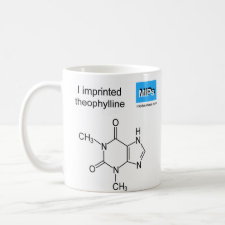
Authors: Kim SH, Lee KS, Kim YH, Choi WJ, Kim BS, Kim EK, Kim DS
Article Title: Photopolymerization and properties of PCL-based biodegradable molecularly imprinted polymers.
Publication date: 2007
Journal: Polymer-Korea
Volume: 31
Issue: (2)
Page numbers: 153-159.
Alternative URL: http://www.cheric.org/research/tech/periodicals/vol_view.php?seq=570304&start=0&number=11&jourid=4&vol=31&num=2&totalcount=13
Abstract: Biodegradable molecularly imprinted polymers WIN can be applied in the biomedical area of biosensors, drug delivery, etc. Therefore, in this study, biodegradable theophylline MIPs were synthesized via photopolymerization using a poly(epsilon-caprolactone) (PCL) macromer as a cross-linker and their physical properties were investigated. The yield for the synthesis of the PCL macromer with terminal acrylate groups was ca. 78 mol%. The products were characterized by the combination of FTIR and H-1-NMR spectroscopic analyses. UV/Visible spectroscopic analysis for removing and rebinding theophylline was performed by monitoring the theophylline concentration in the solution. In vitro biodegradation tests of the theophylline MIPs performed in phosphate buffered saline (PBS) solution at 37 degrees C showed good biodegradability of the MIPs
Template and target information: theophylline
Author keywords: biodegradable molecularly imprinted polymers, poly(epsilon-caprolactone), theophylline, photopolymerization, biodegradability



Join the Society for Molecular Imprinting

New items RSS feed
Sign-up for e-mail updates:
Choose between receiving an occasional newsletter or more frequent e-mail alerts.
Click here to go to the sign-up page.
Is your name elemental or peptidic? Enter your name and find out by clicking either of the buttons below!
Other products you may like:
 MIPdatabase
MIPdatabase









